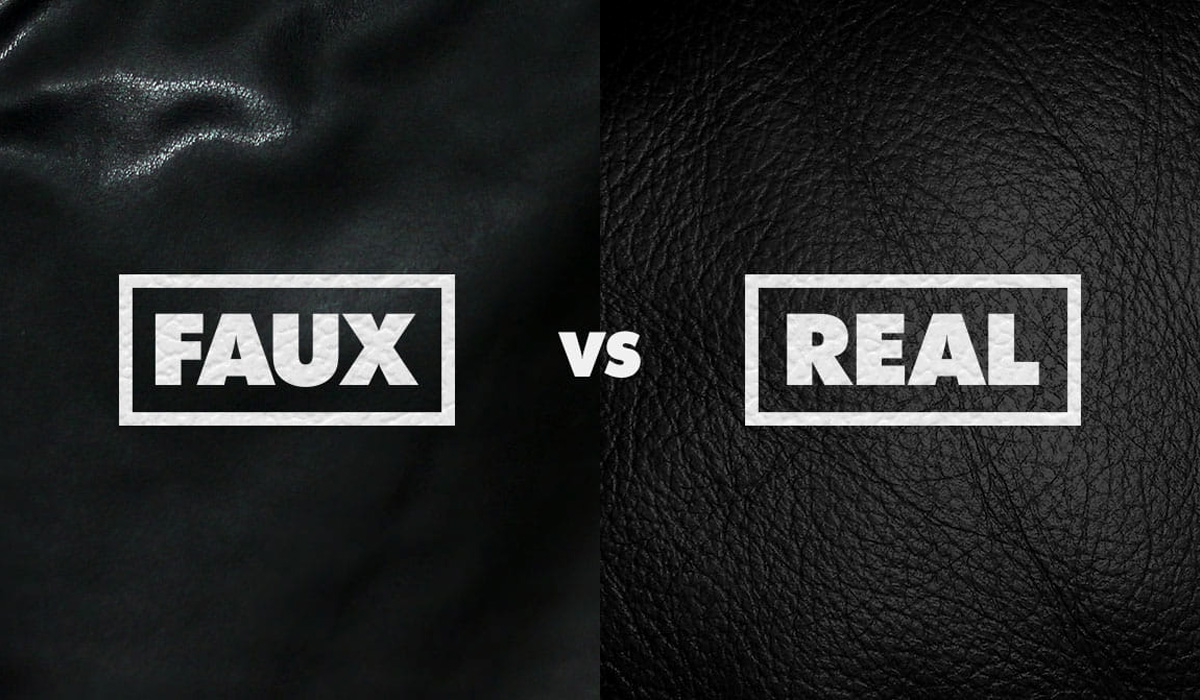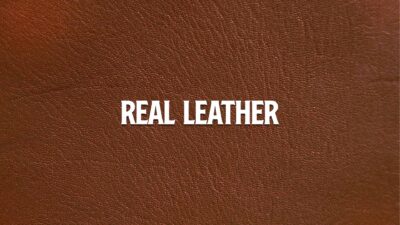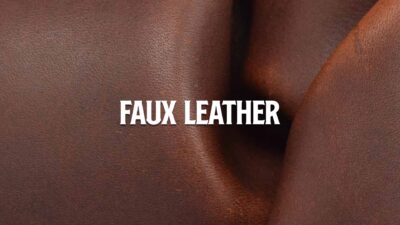Faux Leather vs Real Leather: Which One Should You Choose?

Faux Leather vs Real Leather: Which One Should You Choose?
When it comes to choosing the perfect leather product—be it a jacket, bag, or furniture—the debate of faux leather vs real leather is one that has stood the test of time. Both have their distinct advantages and disadvantages, and understanding the key differences can help you make an informed decision based on your needs, values, and budget.
In this guide, we’ll explore the major differences between faux leather and real leather, including their look, feel, durability, cost, maintenance, and environmental impact. Whether you’re a conscious consumer or a style enthusiast, this comparison will help you decide which material suits you best.
What Is Real Leather?

Real leather is made from the hide of animals, most commonly cows. It is a natural material known for its durability, luxury, and timeless appeal. Real leather comes in different grades, such as full-grain, top-grain, and genuine leather, each offering unique qualities and levels of quality.
Pros of Real Leather:
-
Durability: Real leather can last for decades if properly cared for.
-
Natural Look and Feel: It ages beautifully, developing a rich patina over time.
-
Breathability: Allows air to pass through, making it comfortable for clothing and upholstery.
-
Prestige and Luxury: Often associated with high-end fashion and products.
Cons of Real Leather:
-
Price: Real leather is significantly more expensive.
-
Maintenance: Requires regular conditioning to prevent drying or cracking.
-
Ethical Concerns: Involves animal products, which may not align with vegan or cruelty-free lifestyles.
-
Environmental Impact: Leather tanning processes can be harmful to the environment if not done sustainably.
What Is Faux Leather?

Faux leather, also known as synthetic leather or vegan leather, is made from plastic-based materials such as polyurethane (PU) or polyvinyl chloride (PVC). It is designed to mimic the look and feel of real leather without using animal products.
Pros of Faux Leather:
-
Cost-Effective: Much more affordable than real leather.
-
Animal-Free: Perfect for vegans and ethically-conscious consumers.
-
Low Maintenance: Easier to clean—usually just needs a wipe with a damp cloth.
-
Color Variety: Available in a wider range of colors and textures.
Cons of Faux Leather:
-
Less Durable: Can peel or crack over time, especially with heavy use.
-
Less Breathable: Not as comfortable in warm weather.
-
Plastic-Based: Made from petroleum-derived materials, which can raise environmental concerns.
-
Artificial Feel: Lacks the depth, scent, and aging character of genuine leather.
Faux Leather vs Real Leather: Head-to-Head Comparison
| Feature | Real Leather | Faux Leather |
|---|---|---|
| Source | Animal hide | Synthetic (PU, PVC) |
| Price | Expensive | Affordable |
| Durability | Long-lasting | Moderate lifespan |
| Maintenance | Requires care | Easy to clean |
| Eco-Friendliness | Depends on tanning method | Petroleum-based |
| Aesthetic Aging | Develops patina | No natural aging |
| Vegan-Friendly | No | Yes |
Which One Is Right for You?
The decision between faux leather vs real leather comes down to your personal preferences, values, and how you plan to use the item.
-
Choose Real Leather If you value durability, luxury, and are willing to invest in long-lasting products. It’s ideal for heirloom-quality pieces like leather jackets, boots, or sofas.
-
Choose Faux Leather If you’re looking for a stylish, budget-friendly, and cruelty-free alternative. It’s a great choice for fashion-forward individuals who want versatility without the ethical concerns of animal leather.
Final Thoughts
In the faux leather vs real leather debate, there is no one-size-fits-all answer. Each material has its own strengths and weaknesses. Real leather offers unmatched quality and timeless appeal, while faux leather provides affordability and animal-free fashion. By weighing the pros and cons, you can find the perfect material that aligns with your lifestyle and values.
Before making a purchase, consider the purpose of the item, your budget, and how much wear and tear it will endure. With the right knowledge, your choice—whether faux or real—will serve you well for years to come.
Follow us for the latest leather jacket trends! Instagram | Facebook
